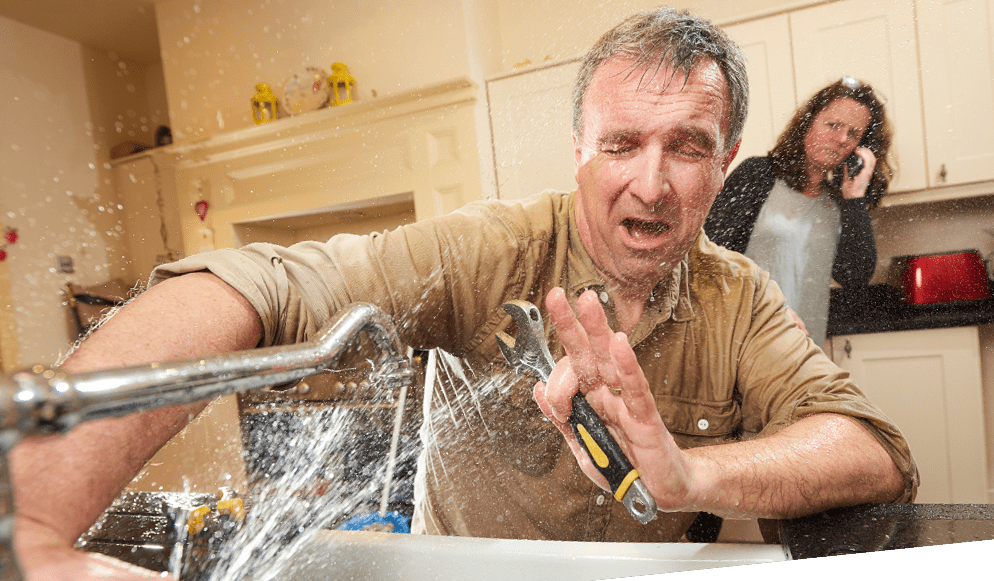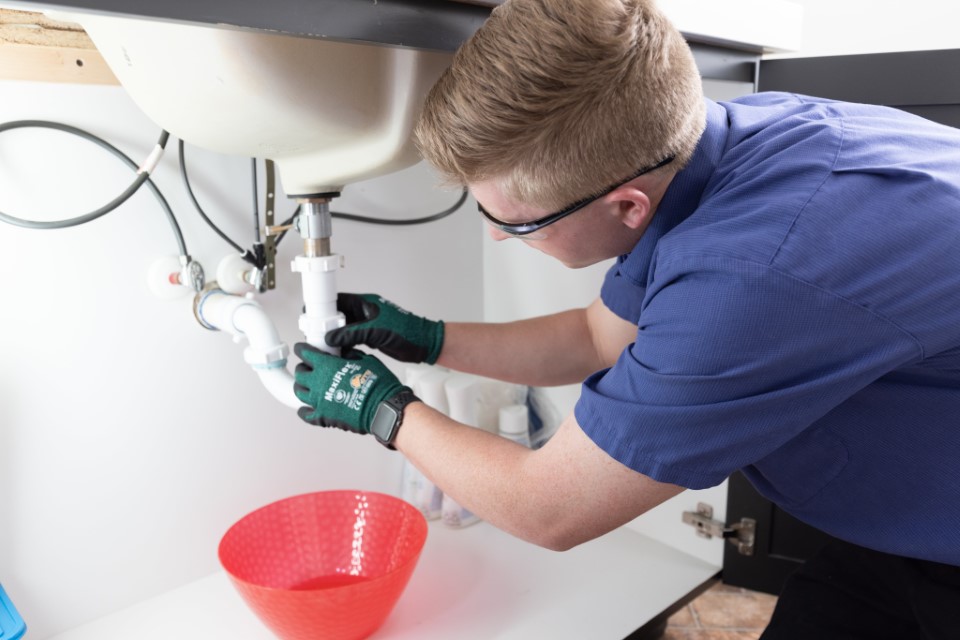Managing Emergency Plumbing Problems: Fast Fixes Until Specialist Help Arrives
Managing Emergency Plumbing Problems: Fast Fixes Until Specialist Help Arrives
Blog Article
The content which follows in relation to Expert Tips for Emergency Plumbing Repairs is pretty much enjoyable. Don't miss out on it.

Pipes emergency situations can strike at any time, triggering stress and anxiety and potential damage to your home. Whether it's a burst pipeline, a clogged drain, or a leaking tap, knowing how to handle the circumstance till a professional plumbing shows up can save you from additional problems. This short article offers vital emergency plumbing tips to help you mitigate damages and reclaim control throughout a pipes dilemma.
Shut off the Supply Of Water
The first step in any pipes emergency situation is to turn off the supply of water. For localized problems, such as a leaking faucet or bathroom, shut off the valve near the fixture. In the case of a major leak or burst pipe, locate your home's main water shut-off valve and turn it off immediately. Knowing the location of these shutoffs ahead of time can conserve beneficial time throughout an emergency situation.
Turn off Your Water Heater
In specific emergencies, such as a burst pipeline, it's important to turn off your hot water heater. This stops overheating or damage to the device when water quits flowing. Turn off the power supply to the hot water heater (electrical or gas) and let it cool down to avoid possible threats.
Briefly Stop a Burst Pipeline
A ruptured pipe can lead to substantial water damages in minutes. To reduce the concern:
Call an expert plumber immediately to deal with the problem completely.
Have an Emergency Pipes Set
Prepare a basic pipes emergency situation kit to manage minor concerns efficiently. Your kit must include:
Having these tools accessible can make a significant distinction in your ability to take care of emergencies.
Unclog Drains Pipes Safely.
A stopped up drain can be an irritating and untidy concern. Here's just how to tackle it:.
If these approaches don't work, prevent making use of excessive force, as it may aggravate the clog.
Manage Overflowing Toilets.
An overflowing bathroom can create prompt chaos. Here's what you ought to do:.
Address Small Leakages with Temporary Solutions.
Tiny leakages can promptly come to be substantial troubles if left uncontrolled. Make use of these short-lived solutions up until expert assistance arrives:.
While these solutions aren't long-term, they can help minimize water loss and damages.
Manage Frozen Pipeline Thoroughly.
In cooler environments, frozen pipelines are a typical emergency. If you think a frozen pipeline:.
Know When to Call a Professional.
While quick fixes can aid briefly, particular plumbing problems require instant professional interest. Call a plumbing if:.
Quickly speaking to an expert makes certain the issue is solved appropriately and avoids more complications.
Avoid More Damage.
Taking quick activity to decrease damage can conserve you money and time in the long run. Right here's just how:.
Conclusion.
Plumbing emergency situations can be frustrating, yet with the right knowledge and tools, you can handle the circumstance properly till aid arrives. By switching off the water, addressing small leaks, and utilizing momentary repairs, you can lessen damages and maintain your home safe. Bear in mind, these pointers are short-lived remedies; constantly consult a qualified plumbing technician to take care of the origin of the issue. Preparation and quick thinking are your finest allies in any type of plumbing emergency.
8 Helpful Tips for Managing Plumbing Emergencies at Home
If your plumbing system hasn’t failed once, wait for it because almost everyone has a story to tell. Sometimes, it could be simple emergencies such as a leaking pipe, a blocked cistern, or even a big burst pipe. In situations like this, you need to have some handy tips to save you some money and from possible damages.
Take care of minor issues early.
Sometimes, you could have avoided an emergency by taking proactive measures while it was still early. Some major plumbing emergencies can be a result of an ignored minor issue. We recommend that you have items like plumbing tapes and other related items. A plumbing tape can allow you to manage minor leaks before the plumber arrives.
Cut off the water supply.
This tip is essential in almost any type of leakage problem. For problems like minor leakages in the toilet or kitchen, turn off the supply that takes water to the affected pipes. If the leakage is a major pipe, you must shut off the supply valve to the entire building. This will help you avoid flooding your home and neighbors if you share a flat.
Know your plumbing system
Folks typically move into a new apartment without understanding the water supply around the building. This can prove disastrous if a water emergency arises and the plumber is far away. The previous tip will prove useless if you don’t practice this one. More importantly, know where your water shut-off valve is located – you’ll need that knowledge to prevent potential home floods.
Have some common handy tools
There are lots of plumbing emergencies that you can handle without hiring a plumber. That’s why you must keep some tools available always. Some tools that you can use to fix simple plumbing emergencies easily include plumbing tapes, screwdrivers, thread seal tapes, plungers, pliers, tape measures, and rubber gloves.
Insulate your pipes from cold
You’ll save yourself from many plumbing expenses if you protect your water pipes from the cold. This is because of the harmful effects that cold weather can have on your pipes. During winter, your pipes can burst from being overly expected to freezing temperatures. So, make sure insulators are there to keep the pipes working correctly.
Avoid practices that will clog your toilet.
Many people indulge in practices that can damage the plumbing system of the entire building. One of these is when they use their toilet to dispose-off garbage. They flush all kinds of things, such as paper towels, bandages, hairs, female sanitary products, etc., down the toilet. This will block your toilet in the long run, incurring unnecessary expenditures. Dump such waste in the trash instead.
Check your dials regularly.
Sometimes, there could be leakages in your home without noticing them in time. So, constantly monitor your water meter dial. If the dial is reading when there is nobody using water, this is an indicator that there is leaking. Check for leaks immediately. Call a plumber as soon as possible if you can’t find any.
https://www.constructionplacements.com/8-helpful-tips-for-managing-plumbing-emergencies-at-home/

I was made aware of that write-up on Expert Tips for Emergency Plumbing Repairs through a pal on a different domain. Those who appreciated our article please don't forget to pass it around. I thank you for reading our article about What to Do During a Plumbing Emergency.
Top Article Report this page